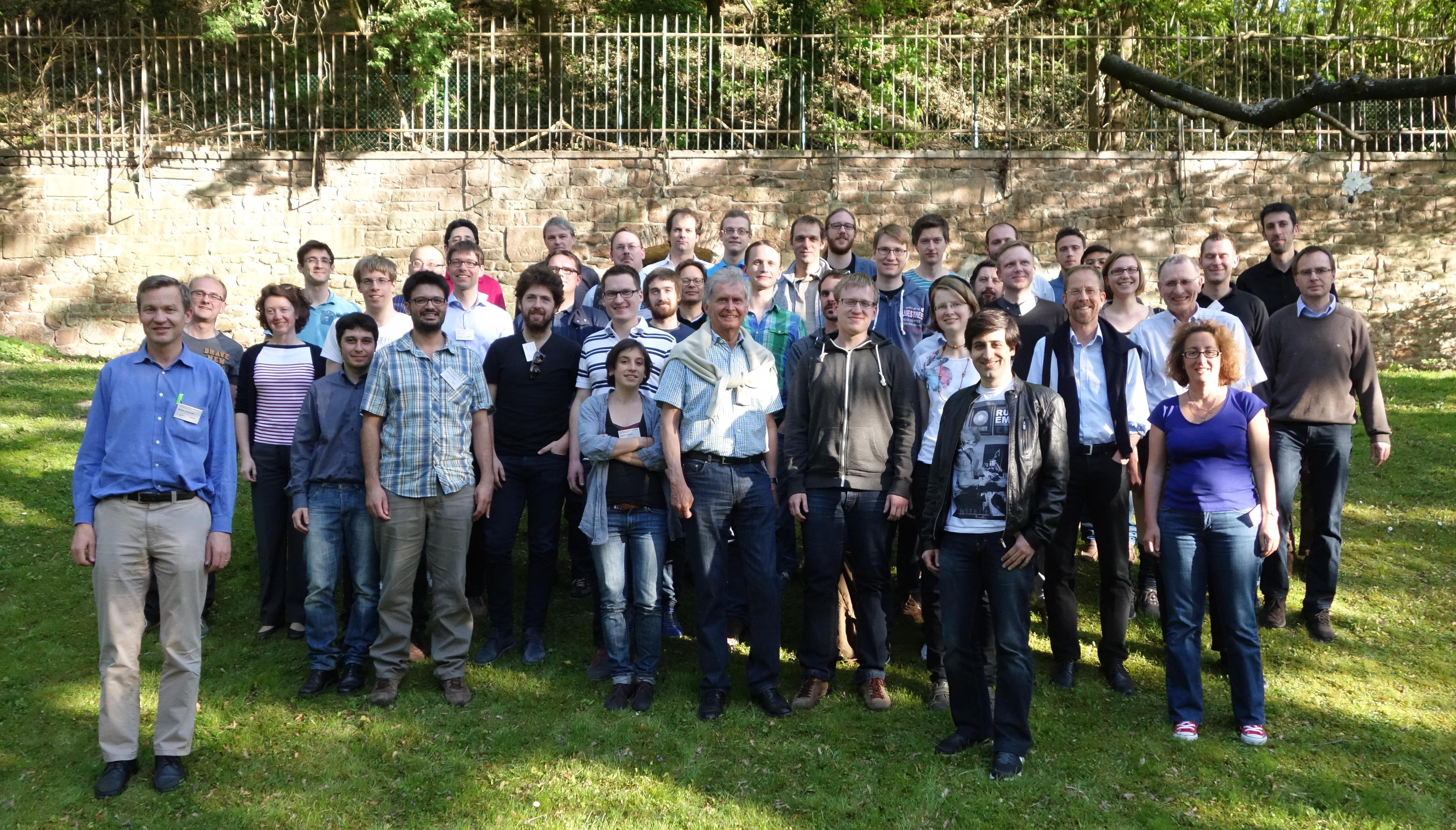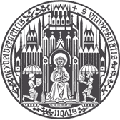Fermions 2015
International Conference at
Internationales Wissenschaftsforum Heidelberg
April 20-24, 2015

organized by
S. Andergassen (Tübingen)
C. Honerkamp (Aachen)
V. Meden (Aachen)
W. Metzner (Stuttgart)
M. Salmhofer (Heidelberg)
supported by
DFG FOR 723 and
MPI-FKF.
Systems of correlated fermions are ubiquitous in nature, ranging from electrons in metals
and other materials to neutron stars. Examples of current interest, such as the cuprate
and pnictide superconductors, quantum dots and other nanostructures, and ultracold gases
of fermionic atoms, exhibit a wealth of phenomena that are important both for fundamental
science and for technology, but only incompletely understood. Over the recent years, the
functional renormalization group has contributed significantly to progress in this area
of research.
As the concluding event of the DFG collaborative research group
Functional Renormalization for Correlated Fermion Systems (FOR 723),
this conference focuses on theoretical advances in the analysis of correlated fermion
systems. A particular aim of the conference is to bring together researchers using a
variety of theoretical methods, in order to discuss and potentially combine different
approaches to unconventional superconductivity, magnetism, and more exotic phases of
matter, as well as transport and nonequilibrium phenomena.
Speakers include
Ian Affleck (Vancouver)
Sabine Andergassen (Tübingen)
Fakher Assaad (Würzburg)
Dietrich Belitz (Eugene, OR)
Igor Böttcher (Heidelberg)
Debanjan Chowdhury (Harvard)
Andrei Chubukov (Madison, WI)
Andreas Eberlein (Stuttgart)
Tilman Enss (Heidelberg)
Serge Florens (Grenoble)
Florian Gebhard (Marburg)
Holger Gies (Jena)
Stefan Kehrein (Göttingen)
Dante Kennes (Aachen)
Peter Kopietz (Frankfurt)
Andreas Ludwig (Santa Barbara)
Catherine Pépin (CEA, Gif-sur-Yvette)
Srinivas Raghu (Stanford)
Manfred Salmhofer (Heidelberg)
Michael Scherer (Heidelberg)
Herbert Schoeller (Aachen)
Philip Strack (Harvard/Köln)
Ronny Thomale (Würzburg)
Frank Verstraete (Vienna)
Philipp Werner (Fribourg)
Gergely Zaránd (Budapest)
Manfred Salmhofer,
Institut für Theoretische Physik





